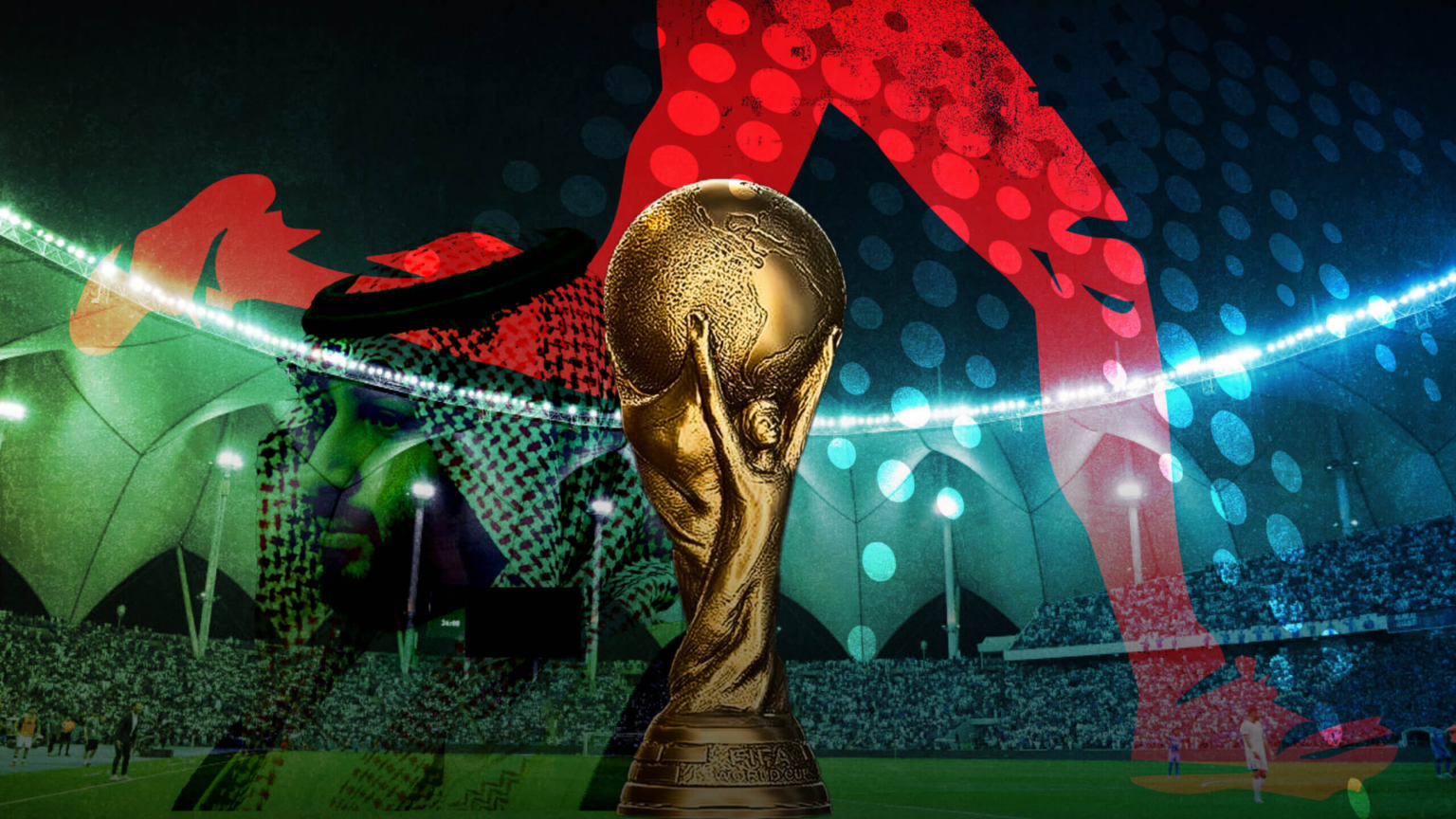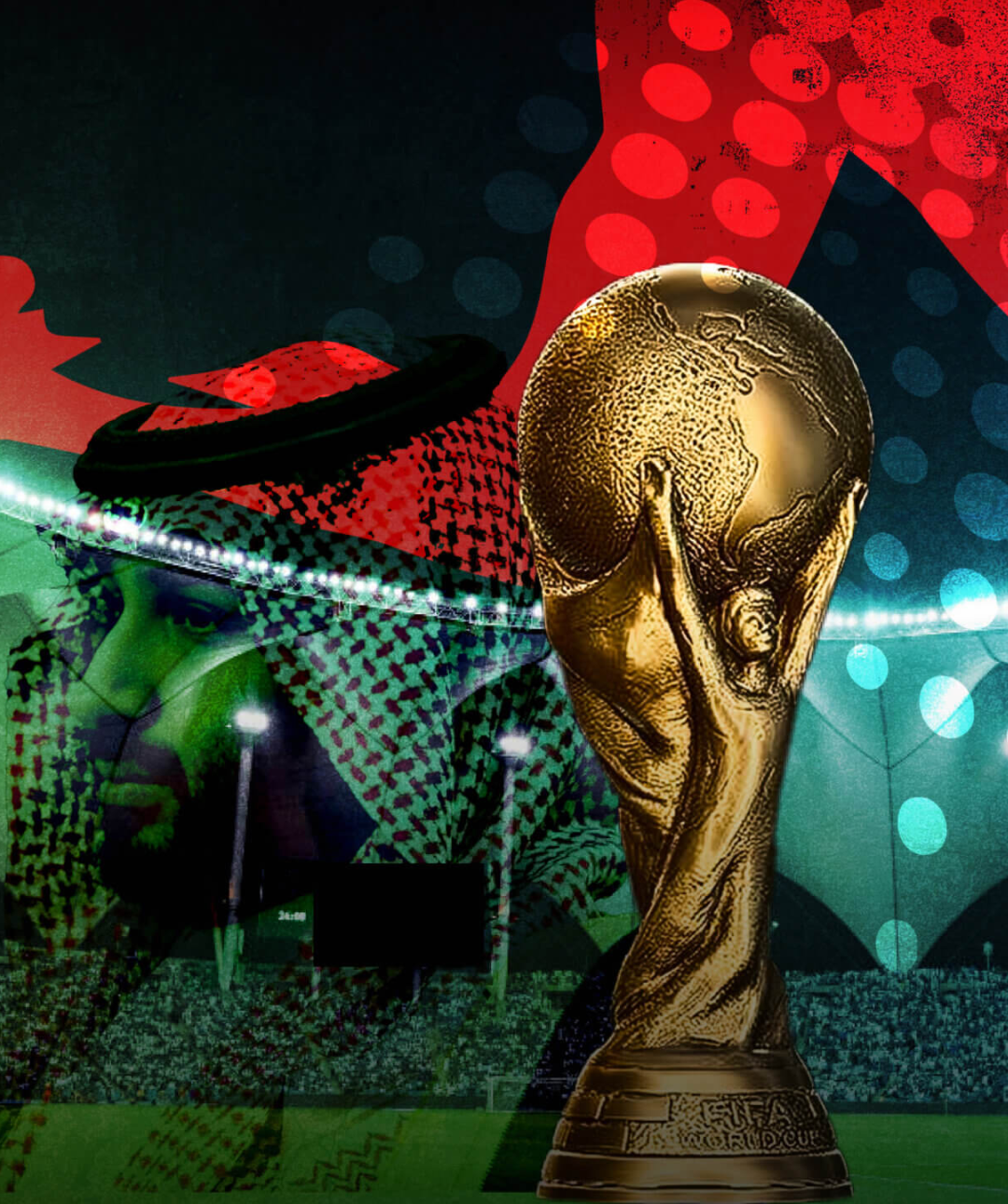In November 2023, news broke that Aramco—Saudi Arabia’s state-owned oil and energy giant—was set to complete a “significant sponsorship” deal with FIFA that would make it the football governing body’s biggest sponsor over the coming decade.


In November 2023, news broke that Aramco—Saudi Arabia’s state-owned oil and energy giant—was set to complete a “significant sponsorship” deal with FIFA that would make it the football governing body’s biggest sponsor over the coming decade.
As reported by The Times, the agreement is estimated to be valued at up to $100 million annually for FIFA and will extend until the 2034 World Cup—the same year that the kingdom is expected to host the men’s World Cup.
If confirmed, the deal would mark one of Aramco’s biggest sponsorship agreements, emphasizing its growing influence across the world of sports and the role that it plays as an extension of the Saudi state’s sporting ambitions.
Established in 1933, Aramco traces its origins to the signing of the “Concession Agreement” between the Kingdom of Saudi Arabia and the Standard Oil Company of California, laying the foundation for the exploration, production, and exportation of oil in the region.
The company’s early years were marked by significant milestones, including the discovery of the first commercial oil field in Dhahran in 1938—the aptly named “Prosperity Well.” Six years later, the company name was changed to the Arabian American Oil Company (Aramco), and by the 1950s, Saudi Arabia had gained full control of its oil resources.
In 1980, the Saudi government officially acquired 100% ownership of Aramco, marking the beginning of its transformation into one of the largest and most influential entities in the global energy landscape.
In December 2019—nearly 40 years after the kingdom attained 100% ownership of the oil giant—Saudi Aramco made headlines with its record-setting initial public offering (IPO). Saudi Aramco sold 1.5% of the company (3 billion shares) on the Saudi Tadawul stock exchange, giving the company a market capitalization of approximately US$1.88 trillion, which made Saudi Aramco the world’s largest listed company.
At the time, sources told the Financial Times that some of the wealthiest families in Saudi Arabia were “bullied” and “strong-armed” into joining the Saudi Aramco IPO to boost its overall market capitalization.
Beyond Aramco’s success as the world’s most valuable oil and natural gas company, the state-owned entity is also a major player in the sports landscape.
A recent study by Stanis Elsborg for Play the Game, an initiative run by the Danish Institute for Sports Studies (Idan) that aims to raise the ethical standards of sport, revealed that Saudi Arabia now boasts nearly 300 sponsorships in sports. The majority of sponsorships were established through collaborations with the Public Investment Fund (PIF), Saudi Arabia’s well-known sovereign wealth fund chaired by Crown Prince and de facto ruler Muhammad bin Salman. Additionally, Aramco played a substantial role in this arena.
According to the report, Aramco directly sponsors 17 tournaments and leagues, including the International Cricket Council (ICC), the Indian Premier League, and the T20 World Cup. The oil giant is also heavily invested in Esports, having sponsored the Formula 1 Esports, Gamers Without Borders, and Gamers8 events.
Moreover, 2024 marks the two-decade milestone of Aramco’s enduring sponsorship of the Houston half marathon, one of the world’s most popular half marathons. Notably, this partnership stands out as the only ongoing Saudi sports sponsorship predating bin Salman’s ambitious Vision 2030 master plan.
Unlike initiatives aligned with the Vision 2030 agenda, this sponsorship was not driven by sportswashing. Instead, its primary objective was to foster goodwill between Aramco and the local community in Houston, where the oil giant operates its United States office.
Aramco is also one of the global sponsors of Formula 1 and has a long-term “strategic partnership” with Aston Martin Racing (AMR), the latter of which is utilized as part of Aramco’s sustainability campaign to reduce engine emissions and pollutants.
“The partnership reflects Aramco’s efforts to reduce emissions in the global automotive and transport industries,” Mohammed Al Qahtani, Downstream president at Aramco, said. “Our ambition is to supply premium fuels and lubricants to the global automotive sector, and our tie-up with the Aston Martin team will help drive awareness of our high-quality products. It is an alliance that harnesses our shared commitment to engineering excellence and innovation and has the potential to deliver winning results both on and off the track.”
Aramco also sponsors a range of local events, including the Diriyah Tennis Cup, as well as the Aramco Saudi Ladies International, Aramco Team Series, and PIF Saudi International golf tournaments.
Aramco’s investment portfolio also includes Al-Qadsiah FC, a football club based in the eastern city of Khobar, which is located near the oil company’s headquarters.
A significant portion of Aramco’s recent foray into sports is spearheaded by Yasir Al-Rumayyan, who not only chairs the oil giant but also serves as the governor of PIF. At 53, Al-Rumayyan has been instrumental in coordinating major investments in the kingdom’s sports sector. He is the chairman of Newcastle United FC, an English Premier League team owned by a consortium that includes the PIF, and played a pivotal role in Saudi Arabia’s attempted takeover of the PGA Tour.
Aramco’s continued investment in sports emphasizes sports’ role in the kingdom’s Vision 2030 economic diversification plan, which seeks to reduce Saudi Arabia’s reliance on oil revenues while building new sectors and industries. The kingdom has made strategic investments in sports ranging from football—where Saudi Arabia transformed its domestic league by luring superstars such as Cristiano Ronaldo and Neymar—to golf, Formula 1, and boxing.
While economic incentives may partially explain Saudi’s sports drive, the kingdom has long been accused of using sports to launder its reputation and distract from ongoing human rights abuses—a practice known as sportswashing.
While Saudi Arabia has boasted legal reforms under Bin Salman, Saudi citizens continue to endure repression in the form of arrests for peaceful dissent, decades-long prison sentences for posting on social media, and forced evictions to make room for the construction of ambitious Vision 2030 projects.
Saudi Arabia has also been heavily criticized for its use of the Kafala system—a labor sponsorship system that applies to foreign nationals living in the kingdom—as well as over its use of the male guardianship system, under which adult women are treated essentially like children and unable to make basic life decisions for themselves. Under the kafala system, an employee’s or migrant worker’s immigration status is tied to an individual sponsor or employer, which increases vulnerability to various abuses, including forced labor and human trafficking. Under the male guardianship system, Saudi women—and even foreign women married to Saudi citizens and their children—can be entrapped in the country by male relatives, forced into marriages, or forced to remain in marriages against their will. A Human Rights Foundation report referred to both of these practices as “modern forms of slavery.”
A recent report by Human Rights Watch accused Saudi border guards of the mass killing of Ethiopian migrants along the border with Yemen. Despite these accusations, sports leagues continue to seek out opportunities to partner with the kingdom.
Despite a mounting list of human rights abuses in Saudi Arabia, the kingdom continues to harness its substantial assets, notably Aramco and the PIF, to extend its influence within the sports arena.
It is a high-stakes game—one where sportswashing serves as a shield for the political whims of wealthy autocrats.
Join us in helping save lives and stand up to tyranny.

Reach out with any questions or support needs.
Become part of our mission-driven team.
Find answers to commonly asked questions in our FAQs.
Hit enter to search or ESC to close